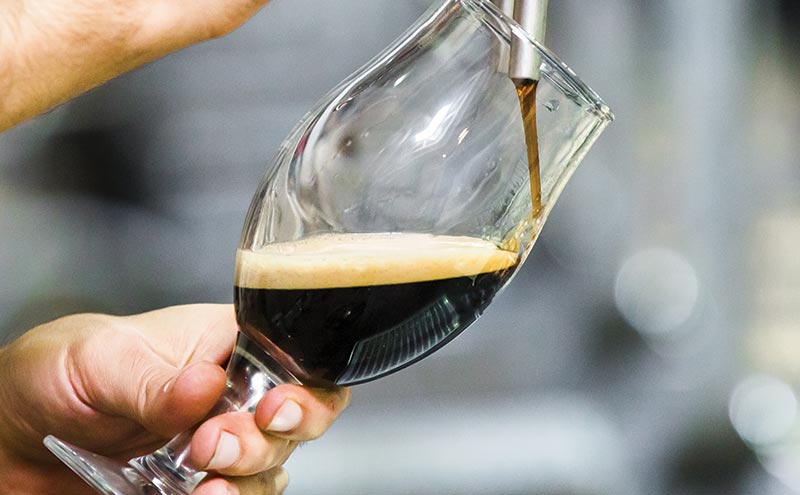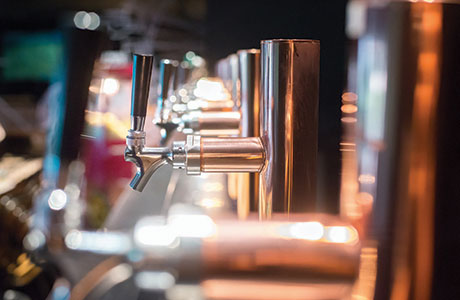Autumn the ideal time to prepare for festive trade, say cellar management firms

WINTER is coming and with it some of the busiest days of the year for the trade.
It pays for operators to make sure they are fully prepared ahead of the festive season, and that means ensuring the cellar and equipment in it are in the best possible shape.
Steve Lakin, of drinks dispense service company Innserve, underlined the “vital” role good cellar management plays in running a successful pub and suggested “quieter times” between summer and festive trade provide an opportunity to “give the cellar an ‘autumn clean’, ready for the busier Christmas period and to set up a new routine which may have been neglected during the summer time”.
Beer is a foodstuff and should be treated as such – all staff with access to the cellar should be trained.
“The autumn is also the perfect time to train staff to ensure that they are fully confident in working the bar over the festive season,” said Lakin.
Richard Cooper, franchised owner of line cleaning firm Clear Brew, Glasgow North, agreed that cellar management practices “should always be a priority,” but suggested a “quiet time like autumn could be the time for a full review of the cellar”.
During this time, publicans might do well to seek advice from cellar management firms and beer suppliers, he said.
“Speak to your suppliers and other professionals as to how you can improve things – every pub is different and an external pair of eyes can often spot areas for improvement that those more involved will take for granted,” he said.

For consistency across the board, staff need to be singing from the same hymn sheet. Cooper highlighted the importance of instilling the right attitude towards the cellar in staff.
“Beer is a foodstuff and should be treated as such – all staff with access to the cellar should be trained to understand your cellar management practices and why they are important,” he said.
“Have a routine that is known and shared with all relevant staff. Stick to it religiously as it’s easy to fall back into bad habits if you don’t.”
Maintaining a cellar routine is key according to Cooper, as cutting corners can affect beer quality.
“Don’t be tempted to skimp on your standards and good practices just because you are busy,” he said.
“For example, skimping on line cleaning can see beer quality suffer especially when throughput is higher.
“This can lead to excess wastage and loss of custom.
“Remember that a one-off Christmas customer has the potential to become a regular customer but not if they are put off by poor quality beer.
“Stick to the industry best practices as anything else is a false economy – these are recommended because experience has shown that they work.
“Cellar temperature is critical and should be between 11˚C and 13°C.
“Anything outside this will affect quality and wastage.
“Switching off air conditioning, say at night, will cause the same problems and is a false economy
“Equally, beer lines should be cleaned every seven days – unless you have a system in place that ensures quality for longer periods.”
Lakin at Innserve agreed that although publicans may be busy over the festive period, “cellar management standards shouldn’t be allowed to slip”; he highlighted the importance in maintaining standards when handling stock.
“You should also remember that kegs and casks should be left a minimum of 24 hours in position in the cellar before being served to allow them to reach the correct serving temperature, stock levels should be regularly monitored, and all products should be regularly checked for sell-by dates,” said Lakin.
Have a routine that is known and shared with all relevant staff. Stick to it religiously as it is easy to fall into bad habits.
“Having well-trained staff will help you achieve this.”
The quieter spell between summer and the festive period doesn’t just give publicans the opportunity to make sure their cellar routine is up to a high standard.
Hance McGhie, of beer line cleaning system manufacturer CellarBright, suggested operators also assess the kit in their cellar during this time.
“Get all equipment in the cellar serviced during this less busy time, it will be time well spent,” said McGhie.
“If, say, a cooler fails during the busy period it can have damaging consequences, spending on old equipment during this time could be worth thousands on the bottom line and future business.”
Gemma Pontin of industrial gas firm Air Products agreed that publicans should manage their equipment, and suggested monitoring wear and tear on each piece of kit.
“As turnover naturally varies each year, I would investigate the equipment life cycle and manufacturer recommendations to coincide with this,” she said.
“Proactive management of your assets and working with your suppliers is key here.”























